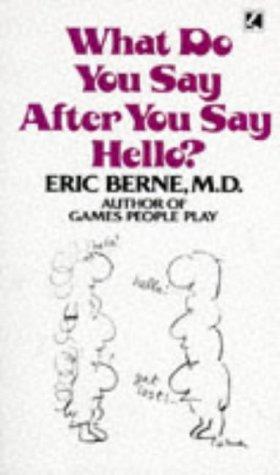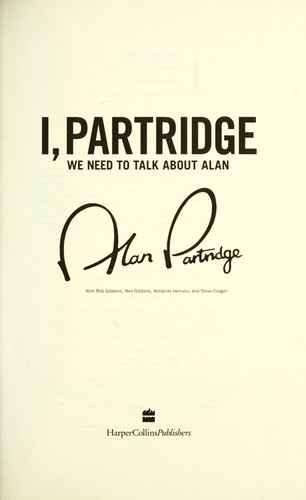PublicHealthInnit rated What Do You Say After You Say Hello?: 1 star

What Do You Say After You Say Hello? by Eric Berne
What Do You Say After You Say Hello? explains what makes the winners win, the losers lose, and the in-betweens …
The book collection of @PublicHealthInnit@sciences.social
Love a good mix of fiction and non-fiction. I like to keep learning and keep reading different types of stuff!
This link opens in a pop-up window

What Do You Say After You Say Hello? explains what makes the winners win, the losers lose, and the in-betweens …

Journalist, presenter, broadcaster, husband, father, vigorous all-rounder -- Alan Partridge -- a man with a fascinating past and an amazing …
This felt to me a mixture of exceptional parts and underwhelming parts. On the whole Faye manages to take discussions that are often discussed as abstract and theoretical, and makes them tangible and personal. The book is strongest when discussing trans activism in the context of LGBTQ+ and feminist movements (the tail end of the book) and weakest when giving leftist critiques of society better described elsewhere.
One aspect I struggle with in this and other socialist-leaning (as I would count myself) books is the whole-hearted embrace of prostitution/sex work… as though capitalism is cruel and degrading unless the commodity in question is women’s bodies. I still remain to be convinced that the red light districts of Germany and the Netherlands are somehow emancipating women and trans people rather than increasing human trafficking and contributing to the sexualisation, fetishisation and marginalisation of these groups.
I have to admit that the density of information coupled with the length of the book and my lack of grounding in the area mean I didn’t make it all the way through, though I do plan to come back to it. However, what’s extraordinary about this book for me is simply the respect with which historical cultures are scrutinised. Rather than seeing cultures as a phase between one era and the next, or a prototypical example of an age of metallurgy, the authors recognise people of the past as just as human, wilful, heterogeneous and complex as modern humans. Really refreshing
The book takes the determinist idea that if you knew enough science, you could effectively predict the future and then does precisely nothing interesting with it. The book is remarkably sexist - Asimov’s disdain for womankind is mostly shown by the depiction of a universe in which women are almost entirely absent. A woman speaks precisely once in the book and in response, she is told that she speaks too much and is threatened by her husband to have her tongue removed.
Also, it’s just pretty boring. I don’t know why it’s still in print.